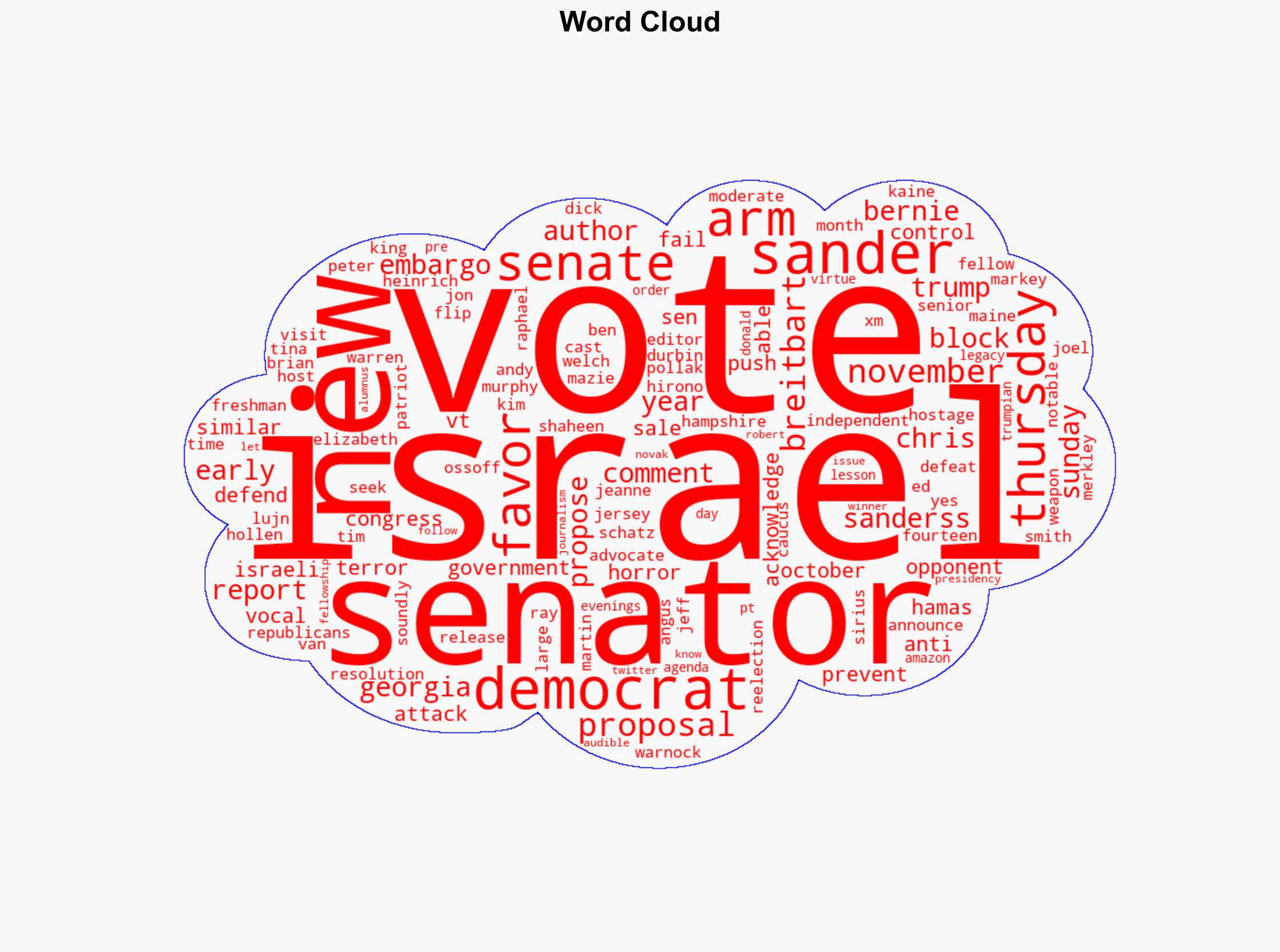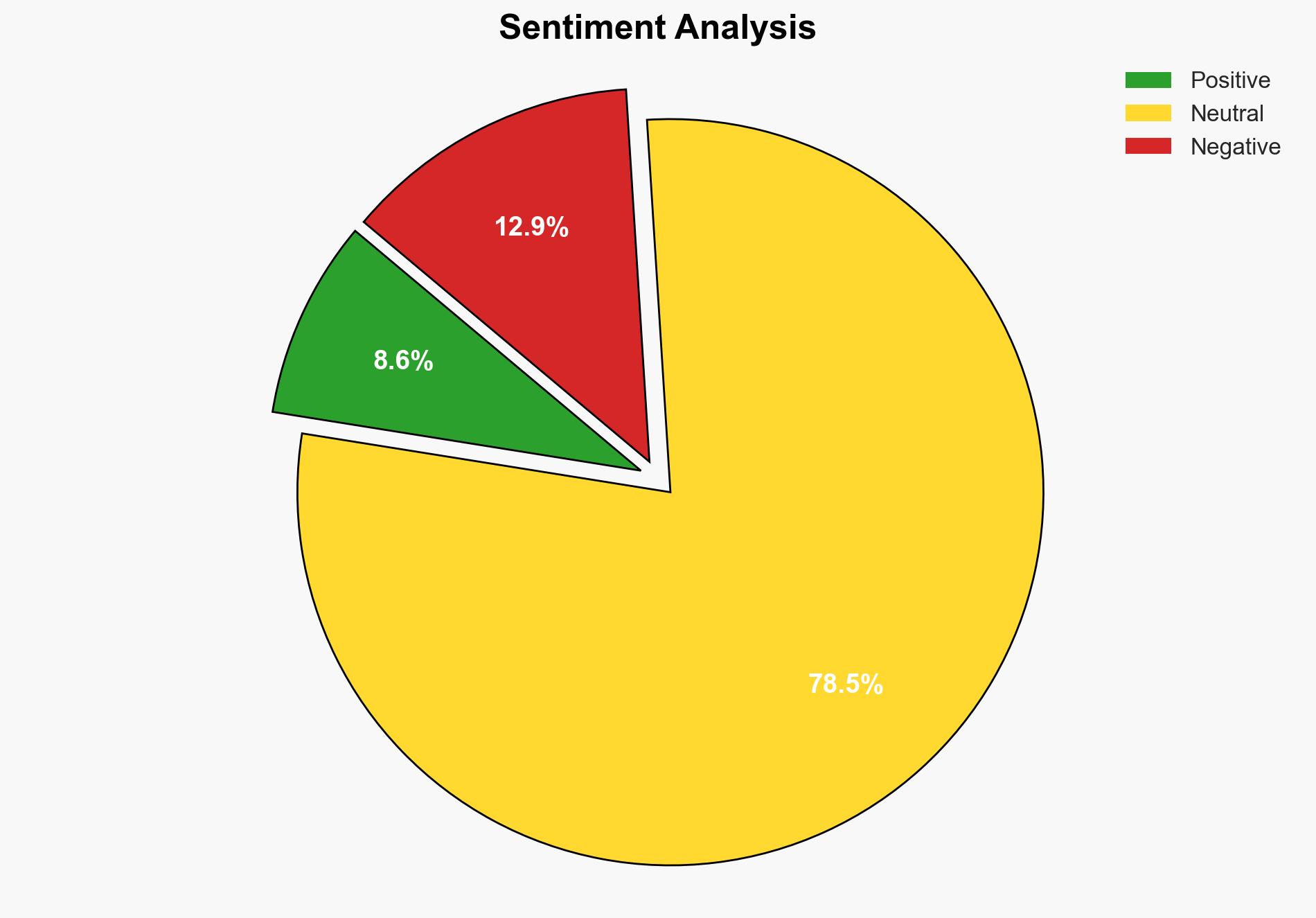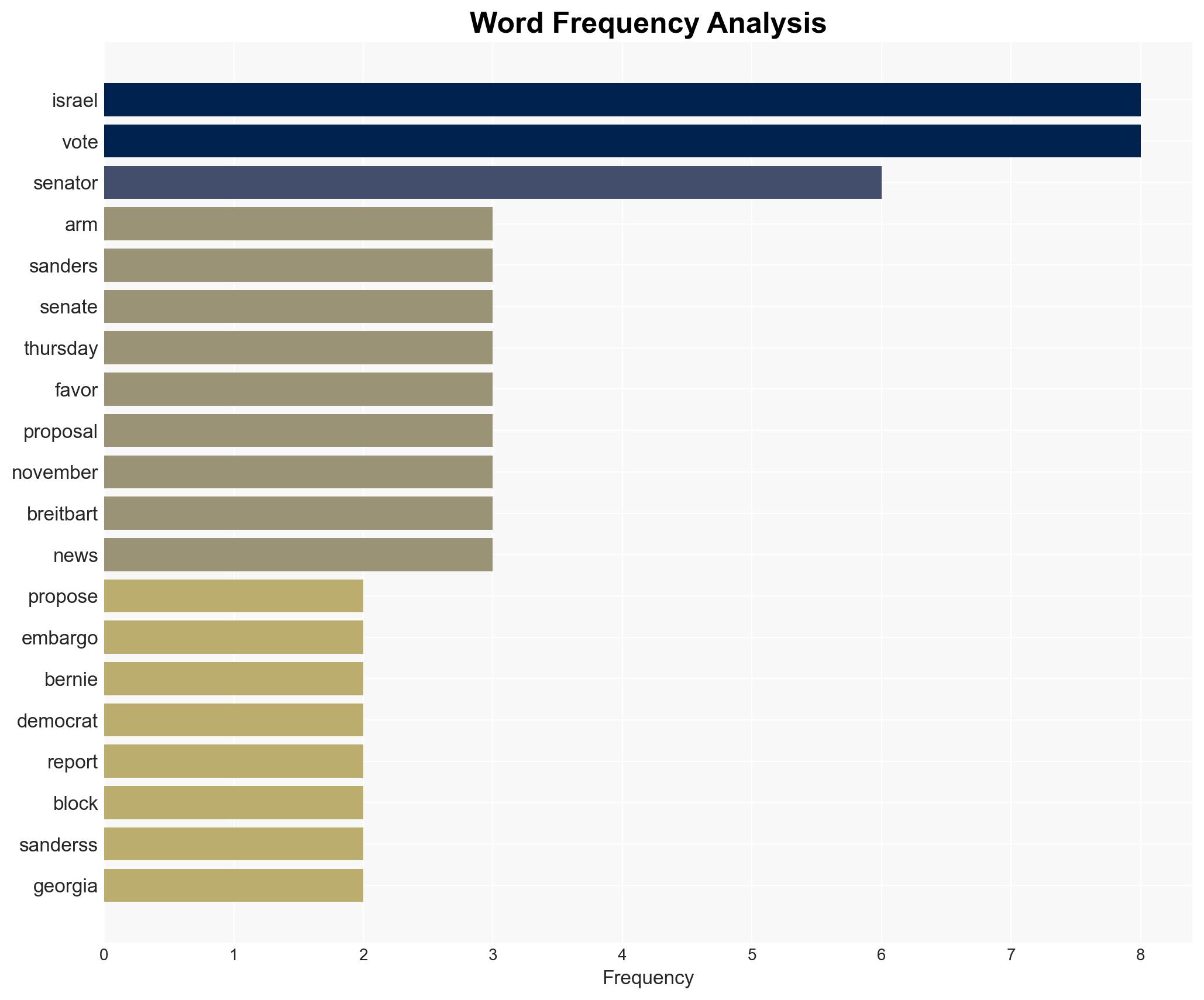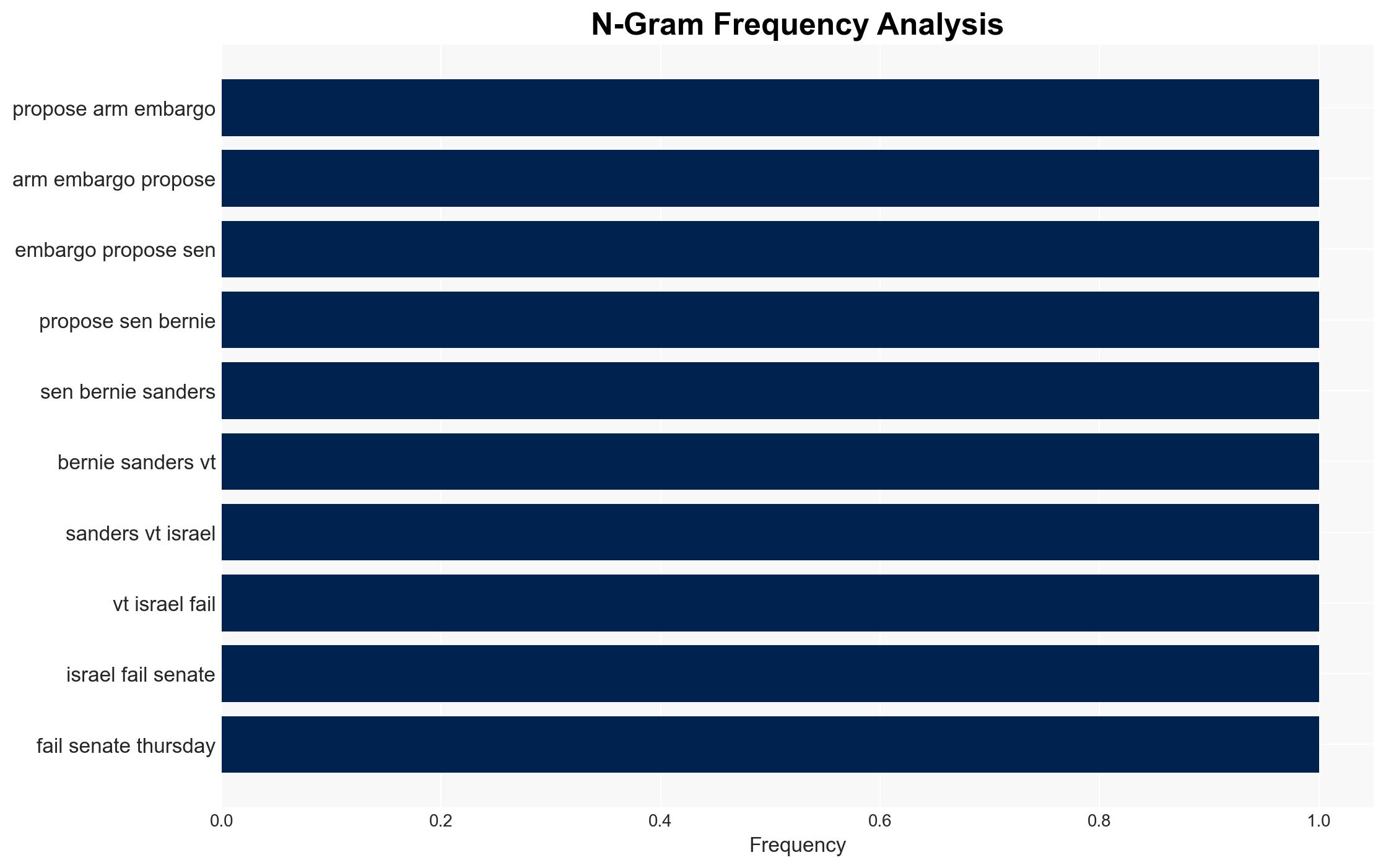Anti-Israel Bloc in Senate Declines from 19 to 15 as Sanders Arms Embargo Fails – Breitbart News
Published on: 2025-04-04
Intelligence Report: Anti-Israel Bloc in Senate Declines from 19 to 15 as Sanders Arms Embargo Fails – Breitbart News
1. BLUF (Bottom Line Up Front)
The proposal for an arms embargo against Israel, led by Bernie Sanders, was defeated in the Senate. The number of senators supporting the embargo decreased from 19 in a previous vote to 15 in the latest vote. This shift indicates a weakening of the anti-Israel bloc within the Senate. Key senators who changed their stance include Jon Ossoff, Raphael Warnock, Jeanne Shaheen, and Angus King. The outcome suggests a continued U.S. support for Israel’s defense capabilities amidst ongoing regional tensions.
2. Detailed Analysis
The following structured analytic techniques have been applied for this analysis:
General Analysis
The proposal for an arms embargo was a response to recent conflicts involving Israel and Hamas. The Senate’s decision reflects a complex interplay of political, strategic, and diplomatic considerations. The decrease in support for the embargo highlights a shift in political dynamics, possibly influenced by recent geopolitical developments and lobbying efforts. The senators who voted in favor of the embargo are primarily aligned with progressive policies, indicating ideological divides within the legislative body.
3. Implications and Strategic Risks
The failure of the arms embargo proposal reduces immediate risks to U.S.-Israel relations, ensuring continued military cooperation. However, the existence of a significant anti-Israel bloc poses a potential risk to future bilateral agreements. Regionally, the decision may embolden Israel’s defense posture, potentially affecting stability in the Middle East. Economically, defense contractors and related industries may experience stability due to continued arms sales.
4. Recommendations and Outlook
Recommendations:
- Enhance diplomatic efforts to address underlying causes of regional tensions, promoting long-term stability.
- Monitor shifts in legislative support to anticipate future policy changes affecting U.S.-Israel relations.
- Encourage dialogue among stakeholders to bridge ideological divides within the Senate.
Outlook:
Best-case scenario: Continued bipartisan support for Israel leads to strengthened diplomatic and military ties, contributing to regional stability.
Worst-case scenario: Rising tensions within the Senate lead to legislative gridlock, affecting future defense cooperation.
Most likely scenario: Incremental changes in Senate support, with ongoing debates over U.S. foreign policy in the Middle East.
5. Key Individuals and Entities
Significant individuals mentioned in the report include Bernie Sanders, Jon Ossoff, Raphael Warnock, Jeanne Shaheen, Angus King, Andy Kim, Mazie Hirono, Ben Ray Luján, Chris Van Hollen, Jeff Merkley, Ed Markey, Tim Kaine, Elizabeth Warren, Martin Heinrich, Brian Schatz, Tina Smith, Dick Durbin, Peter Welch, and Chris Murphy.





